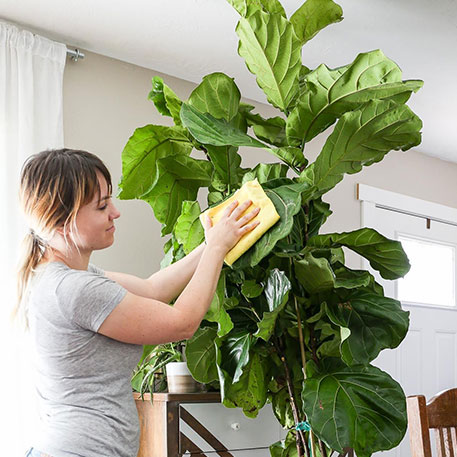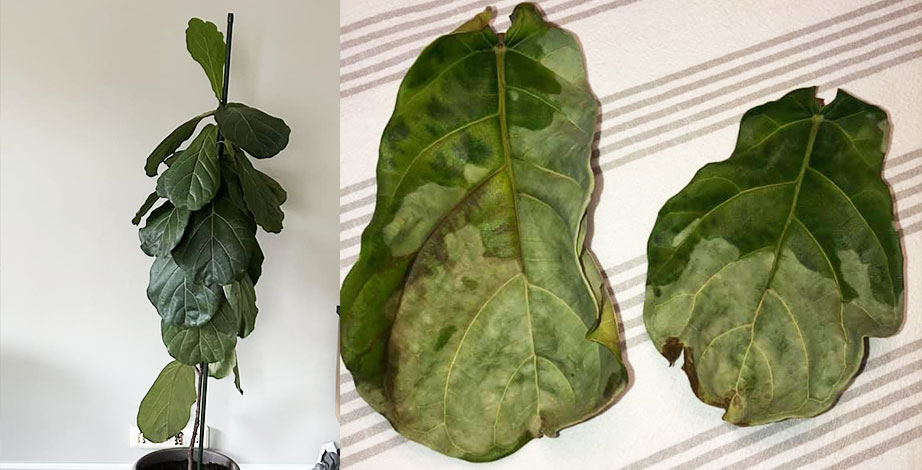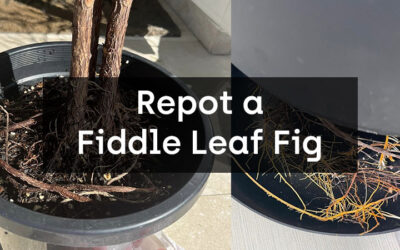As winter approaches, it’s essential to ensure the well-being of your beloved fiddle leaf fig plant. These tropical beauties require a bit of extra care during the colder months to thrive. In this article, we’ll guide you through the process of winterizing your fiddle leaf fig, ensuring its health and vitality throughout the chilly season.
Why Winter Care Matters
Before we delve into the specifics of winterizing your fiddle leaf fig, let’s understand why it’s so crucial. Fiddle leaf figs are native to warm and humid environments, and they don’t tolerate cold temperatures well. Neglecting proper winter care can lead to issues like leaf drop, stunted growth, and even plant death. By following these guidelines, you’ll help your fiddle leaf fig adapt and flourish during winter.
Choosing the Right Location
Selecting an Ideal Spot for Your Plant
During winter, finding the right location for your fiddle leaf fig is paramount. Place it near a large, south-facing window to maximize sunlight exposure. Ensure that the plant isn’t touching the cold glass, as it can lead to cold shock.
Monitoring Temperature and Humidity
Maintaining a consistent temperature is crucial. Fiddle leaf figs prefer temperatures between 60-75°F (15-24°C). Avoid placing them near drafty windows, vents, or radiators. Also, keep the humidity level around 40-50% using a humidifier or a pebble tray.

Adjusting Watering Routine
Adapting Watering Habits
As the plant’s growth slows down during winter, adjust your watering routine accordingly. Allow the top inch of soil to dry before watering, and be cautious not to overwater. Overly moist soil can lead to root rot, which is especially risky in cooler weather.
Testing Soil Moisture
To accurately gauge moisture levels, insert your finger into the soil up to your knuckle. If it feels dry, it’s time to water; if it’s still moist, hold off for a few more days. Remember, it’s better to underwater than overwater.
Pruning and Fertilizing
Pruning Excess Growth
Before winter sets in, consider pruning any excessive growth. Trimming away leggy branches or unruly leaves can help maintain the plant’s shape and encourage new growth come spring.
Reduced Fertilization
Fertilization should also be adjusted during winter. Instead of regular feeding, switch to a diluted, balanced liquid fertilizer once a month. This mild feeding will provide essential nutrients without overwhelming the plant.
Protection from Drafts
Shielding from Cold Drafts
Cold drafts can be detrimental to fiddle leaf figs. Make sure your plant is protected from any chilly breezes that might enter your home. You can use a light curtain or a plant stand to create a barrier between the plant and the cold air.

Quarantine New Plants
Isolating New Additions
If you’ve recently acquired a new fiddle leaf fig, keep it isolated from your existing plants for a few weeks. This practice prevents potential pests or diseases from spreading and affecting your established plant collection.
FAQs
1. Can I keep my fiddle leaf fig in an unheated room during winter?
It’s best to avoid exposing your fiddle leaf fig to extremely cold temperatures. If the room gets too cold, consider moving the plant to a warmer location.
2. Is misting the leaves a good way to increase humidity?
Misting can help temporarily, but it’s more effective to use a humidifier or a pebble tray to maintain consistent humidity levels.
3. Can I use the same fertilizer I use in summer during winter?
It’s recommended to switch to a diluted, balanced liquid fertilizer during winter to avoid overfeeding the plant.
4. How often should I check for pests during winter?
Regularly inspect your plant for pests, as they can be more dormant during winter but can still cause problems.
5. When can I resume regular feeding and pruning in spring?
Once the weather starts to warm up and your plant shows signs of new growth, you can gradually resume your regular feeding and pruning routine.







0 Comments